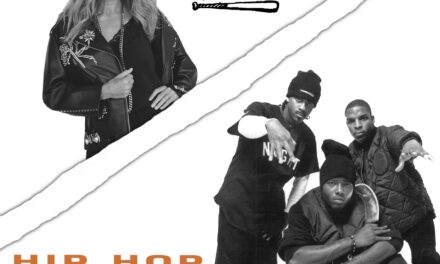NEW YORK, NY – When the prolific and gifted pianist Kris Bowers won the 2011 Thelonious Monk International Jazz Piano Competition at the Kennedy Center in Washington, DC., I, along with a number of my music critic colleagues present, were tremendously impressed in the style and manner in which Bowers maneuvered his way around the piano. Which is why I am puzzled and somewhat disappointed that he did not show that same amount of finesse and grandiloquent in his Concord Jazz Records’ March 4, 2014 debut album title Heroes+Misfits as he eloquently demonstrated at the Monk competition.
Bowers’ rationale for the album was summed up in this way: “It’s important to me that this record touches people in some way,” he says. “I want people to have some kind of immediate response to it – whether it makes them feel good, or makes them feel sad, or makes them think about things. I want this music to help people – especially people of my generation – realize the potential and the power that is inside of them. I want it to be an optimistic look at their unlimited possibilities.”
I get the reasoning for wanting to be heard and giving those of his generation a voice – but this is a debut album that is supposes to give the jazz audience of the world an opportunity to hear the unique piano style that only Kris Bowers can reveal. Instead, Heroes+Misfits is heavily accentuated with electronic, eclectic and synthesizers fusion coming from a talented sextet of great artists such as: alto saxophonist Casey Benjamin, tenor saxophonist Kenneth Whalum III, guitarist Adam Agati, bassist Burniss Earl Travis II, and drummer Jamire Williams. Guest vocalists Julia Easterlin, José James and Chris Turner also lend a hand on four of the album’s ten tracks.
The sextet is to be commended for adhering to Bowers’ original concept for this album which was to convey the essentially insupportable idea that history is somehow over, that the great political and cultural movements are behind us. Bowers’ Heroes+Misfits clearly articulate the historical fact that music has always played an important part in every social and cultural movement that has ever existed. When you listen to the beautiful, uplifting, exceptionally and moving selection Ways of Light, sung by Hip-Hop Pop/Jazz vocalist José James, the concept as previously mentioned has an appeal which lies in the two liberating illusions Bowers cleverly fosters: first, the song convey 24 year-old Bower’s present generation is perched atop the historical mountain, looking down at the past, like gods; and second, that history afterlife is a clean slate, upon which we are free to scrawl our own blueprints for the future.
Bowers, along with his contemporary pianists and composers Jason Moran, Gerald Clayton, Jonathan Batiste, and Eric Reed, are representative jazz musicians for the early years of the 21st Century, at home with classic jazz, Hip-Hop, and everything in between, which is why Heroes+Misfits will not be readily accepted by some of the affectionate guardians of traditional/contemporary jazz. Traditionalists have a hard time embracing new jazz fusion which goes back to Ornette Coleman, Monk, Mary Lou Williams, and Benny Goodman – musicians who broke the rules and blazed a new trail for others to follow.
An artist should be as free and at liberty to record any music he or she desires as far as I am concern. But in the case of Bowers’ Heroes+Misfits, it would have been wiser to give us a little more of your piano solos, improvising techniques, and stylistic variations. This album would have been more appropriate if Bowers had several albums preceding this one which spotlights his concentration of interpreting the Jazz Standards/Classics.
When you listen to Bowers’ original solo composition First track, even though the piece is only one minute and 29 seconds – it is an haunting ballad full of the richness and sounds of late pianist Stephen Scott’s decidedly eccentricity and MJQ John Lewis’ unique skills in knowing how to take his time. Bowers gives the impression of a musician so at home with his technique that he has no need to show it off; so at ease with himself that the keyboard is a feast of choices and rhythm a sea to be navigated at will. On First, he is cool and he is hip. This is the Kris Bowers the world is waiting to hear more of.
Danny R. Johnson is San Diego County News’ Jazz and Pop Music Critic.







